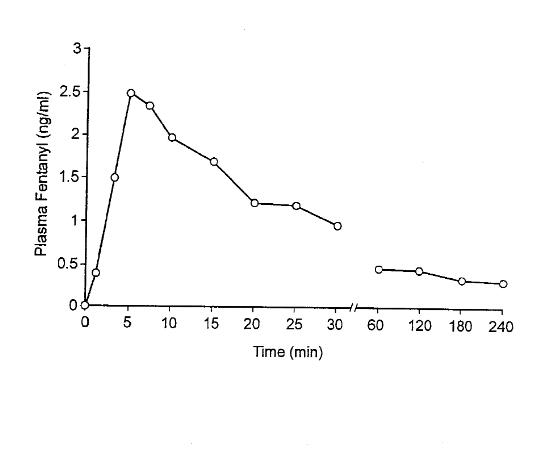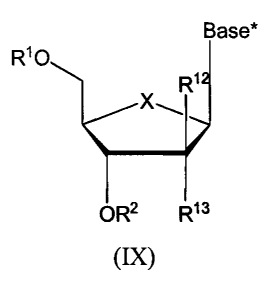Usefulness, or utility, is a statutory requirement for patentability. The
standard for utility is low. Utility is a necessary pre-condition for patentability. In order for a patent to be valid, the invention it purports to protect must be useful.
- Filter by
- Categories
- Tags
- Show all
- Article
- Confusion
- Contract
- Copyright
- Corporate
- Domain Names
- Employment
- Expungement
- Expungement
- Grey Marketing
- Industrial Designs
- Licensing
- Obviousness
- Opposition
- Passing Off
- Patent
- Patent Infringement
- Patent Strategy
- PCK News
- PM(NOC)
- Procedure
- Prosecution
- Services
- Summary
- Trade Secrets
- Trademark
- Use
- Validity
- Abandonment
- Abstract Theorems
- Abuse of Process
- Accounting of Profits
- Alice/Mayo Test
- Ambiguity
- Anticipation
- Appeal
- Apple
- Artificial Intelligence
- Assignment
- Bargain Theory
- Biosimilar
- Biotech Patents
- Branding
- business
- CAFC
- Canada
- Certificate of Supplementary Protection
- Chemical Patent
- CIPO
- claim
- Claim Construction
- Class Actions
- College of Patent Agents and Trademark Agents
- combination drugs
- Commercial Success
- Common General Knowledge
- Confidential Information
- Confusion
- Contract
- Copyright
- Copyright Infringement
- Costs
- Counterfeit
- Court of Appeals for the Federal Circuit
- COVID-19
- Damages
- Data Protection
- Design Patents
- Distinctiveness
- Diversity
- DNA Patents
- Domain Names
- Dosage Range
- Double Patenting
- Due Care
- E-Commerce
- Enablement
- Estoppel
- Evidence
- Expert Evidence
- Fair Use
- Federal Court
- Federal Court of Appeal
- File Wrapper Estoppel
- Food and Drug Regulations
- Fraud
- funding
- Generic Drugs
- Hague Agreement
- Indefiniteness
- Induced Infringement
- Industrial Designs
- Injunction
- Innovation
- Innovative Drugs
- Insufficient Disclosure
- Intellectual Property
- Inter Partes Review
- Investors
- IP Litigation
- IP Strategy
- IP Treaty
- IPIC
- Jurisdiction
- Law Firm
- Licensing IP
- Madrid Protocol
- Methods of Medical Treatment
- Non-Infringing Alternative
- Non-Practicing Entity
- Novelty
- Obviousness
- Official Marks
- On-Sale Bar
- Overbreadth
- Ownership & Inventorship
- Passing Off
- Patent Act
- Patent Agent
- Patent Appeal Board
- Patent Application
- Patent Drafting
- Patent Fees
- Patent Infringement
- Patent Law
- Patent Lawyer
- Patent Litigation
- Patent Prosecution
- Patent Rules
- Patent Strategy
- Patent Term Adjustment
- Patent Textbook
- Patent Trolls
- Patent Validity
- Patentable Subject Matter
- Patents
- PCT
- Pharmaceutical Patent
- Pharmaceutical Pricing
- PM(NOC)
- PMPRB
- Prior Art
- Prior Disclosure
- prior use
- Priority
- Privilege
- Product Specificity
- Promise Doctrine
- Provisional Patent
- Punitive Damages
- Reinstatement
- Remedies
- SCOTUS
- Selection Patent
- Software
- Software Copyright
- Software Patent
- Sound Prediction
- Springboard Profits
- SRED
- Standard of Review
- Start-up
- Startups
- Supreme Court of Canada
- Technology
- Trade Secrets
- Trademark
- Trademark Agent
- Trademark Expungement
- Trademark Infringement
- Trademark Law
- Trademark Opposition
- Trademark Registration
- Trademarks Act
- United States
- Use
- USPTO
- Utility
February 3, 2022
February 3, 2022
Canada's Federal Court dismissed allegations by Paid Search Engine that Google infringed a patent for optimizing paid search engines.
January 24, 2022
January 24, 2022
Outside Canada, Teva’s Copaxone® 40mg/mL dosing patents have been invalidated for obviousness, making way for generic competitors.
December 19, 2017
December 19, 2017
2017 FC 777 - The FC rejected Teva’s allegations that Pfizer's Canadian patent was obvious and lacked utility. The FC found that the POSITA would not have been able to predict the novel crystalline form taught by the patent, and that the subject-matter of the invention claimed in the patent was useful.
December 12, 2017
December 12, 2017
2017 FC 774 - The FC granted Pfizer's order pursuant to Section 6 of the PM(NOC) Regulations, prohibiting the Minister of Health from issuing a NOC to Apotex, with respect to a Canadian patent The FC found, on a balance of probabilities, that Apotex’s allegations of obviousness, inutility, non-infringement, overpromising, anticipation and double patenting were not justified.
November 14, 2017
November 14, 2017
2016 FC 1362 - The formulation patent for the insomnia-treating drug zolpidem was found to be substantially valid, but not infringed by Pharmascience's generic version of zolpidem.
October 10, 2017
October 10, 2017
2017 FCA 161 - The FCA dismissed Idenix's appeal to a FC decision in which Idenix's Canadian patent was found invalid for insufficient disclosure and its counterclaim against Gilead was dismissed.
June 30, 2017
June 30, 2017
2017 SCC 36 - The Supreme Court of Canada struck down the “promise doctrine” of Canadian patent law in favour of merely requiring a single use related to the nature of the subject-matter of the invention having a scintilla of utility.
June 27, 2017
June 27, 2017
Case No. UNCT/14/2 - An ICSID Tribunal dismissed Eli Lilly’s claim against Canada, which was brought in relation to two Canadian patents owned by Eli Lilly that had been invalidated for failing to provide the utility they promised.
June 6, 2017
June 6, 2017
2016 FC 344 - Apotex alleged in its Notice of Allegation and submissions that the ‘632 Patent was invalid because it was obvious and lacked utility. The FC found that the allegation was justified.
March 14, 2017
March 14, 2017
2015 FC 1237 - The FC heard and granted an application by Leo Pharma to prohibit Teva Canada from being issued a Notice of Compliance under the PM(NOC) Regulations.
December 20, 2016
December 20, 2016
2015 FC 108 - Patent drafters are required to provide adequate disclosure of an invention in patent applications to reduce the likelihood that the granted patent will be litigated and invalidated years down the road. This Federal Court (“FC”) decision dismissed an application for a prohibition order on the grounds of non-infringement and found the patent to be obvious and lacking in utility.
April 22, 2016
April 22, 2016
2015 FC 1156 - The FC found that Idenix’s patent was invalid for a lack of utility, demonstrated or soundly predicted, and for insufficient disclosure.
April 5, 2016
April 5, 2016
2015 FC 125 - The existing patent was invalid on the grounds of lack of utility for having made a promise of utility that could not be demonstrated nor soundly predicted, was anticipated by a previous patent of the applicant that claimed an overlapping dosage range, and was also therefore made obvious by the same previous patent.
March 28, 2016
March 28, 2016
PAB 1384 - If a pharmaceutical patent is construed to make a promise, then that promise must relate to how the invention will ultimately be used – not simply to the properties of the pharmaceutical itself.
March 3, 2015
March 3, 2015
Alcon Canada Inc v Cobalt Pharmaceuticals Company, 2014 FC 149 - The Court examined in detail a number of experiments disclosed in the patent that were said to establish the claimed utility, but the experiments did not demonstrate or soundly predict utility for the broad ranges of molecular weight and chemical concentration claimed.
November 21, 2014
November 21, 2014
Apotex Inc v Pfizer Canada Inc, 2014 FCA 250 - The Court rejected Apotex’s sweeping argument that any given promise in the patent must be construed as overarching to all of the patent’s claims.
October 27, 2014
October 27, 2014
Dow Chemical Co v NOVA Chemicals Corp, 2014 FC 844 - The Federal Court found that NOVA Chemicals infringed Canadian Patent No. 2,160,705, owned by The Dow Chemical Company, by NOVA’s use of its “SURPASS” polyethylene product. Allegations of invalidity for lack of utility, claims broader than any invention made or disclosed, anticipation, obviousness, double patenting, and insufficiency of the specification were unsuccessful.
July 31, 2014
July 31, 2014
Allergan Inc v Apotex Inc, 2014 FC 567 - In terms of claim construction, this case shows the tension between construing claims based solely on the wording of the claims versus peering beyond the wording of the claims to distill an underlying invention.
October 18, 2013
October 18, 2013
F Hoffmann-La Roche AG v Commissioner of Patents, 2013 FC 1001. Background This is an application for an order pursuant to s. 20 of the […]
October 1, 2013
October 1, 2013
Re: Patent Application No. 2,248,228 [CD 1340] Background The Commissioner of Patents reviewed the decision of the PAB relating to patent application 2,248,228 entitled ‘METHOD OF […]




